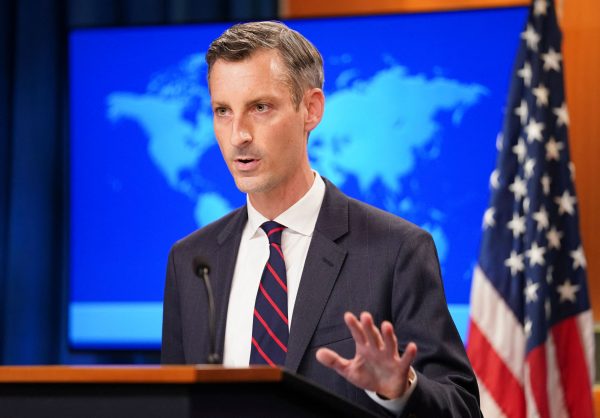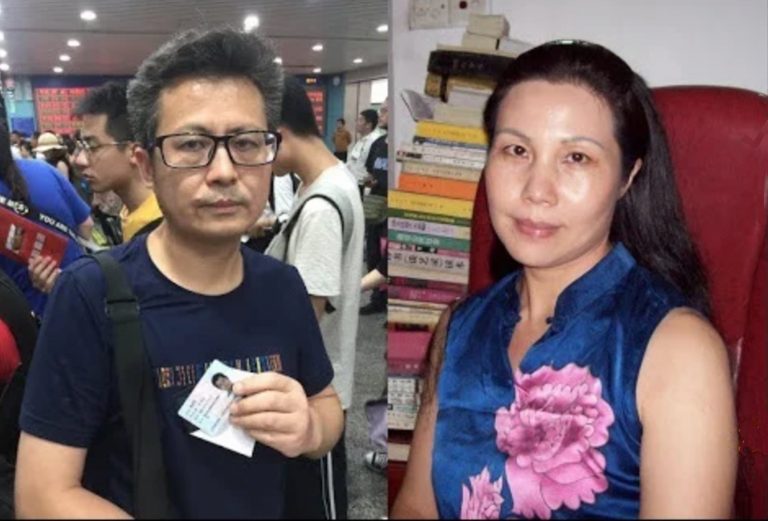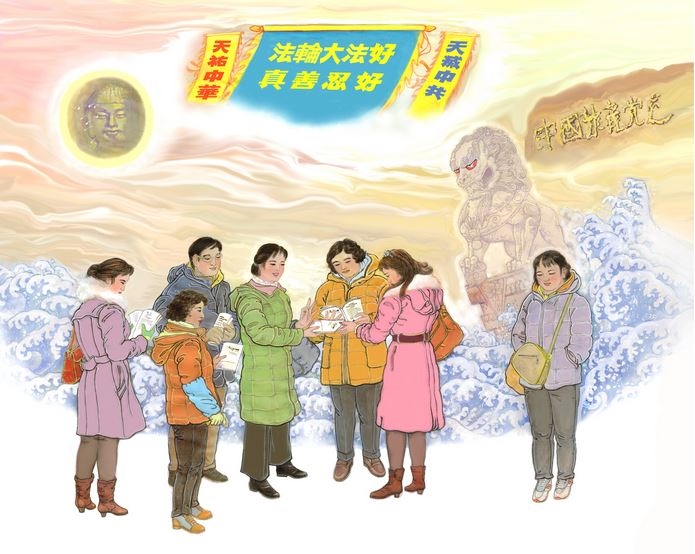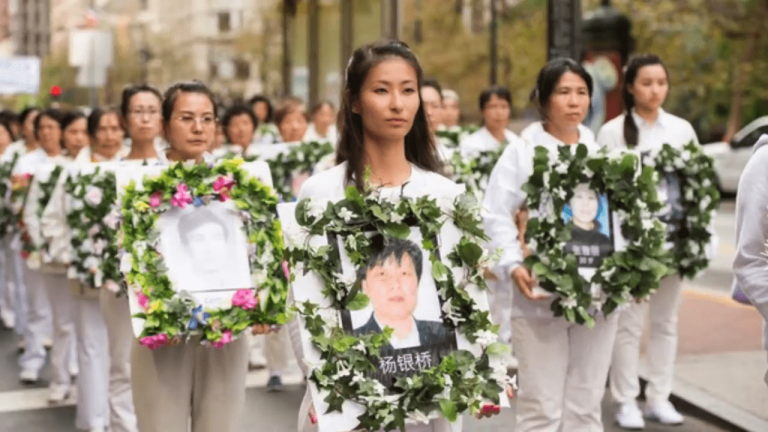U.S. Department of State spokesperson Ned Price released a statement on Jan. 14 calling on Beijing to immediately grant Chinese human rights activist Guo Feixiong permission to travel to the U.S. to be reunited with his family following the death of his wife Zhang Qing on Jan. 10.
“We offer our condolences following the passing of Zhang Qing, wife of Chinese human rights activist and defender Guo Feixiong (also known as Yang Maodong),” Price said.
“People’s Republic of China (PRC) authorities have subjected Guo to years of mistreatment, imprisonment, routine harassment and surveillance, and denied foreign travel for his peaceful advocacy on behalf of the Chinese people.”
Zhang Qing had battled cancer for over a year before succumbing to her ailment. Zhang’s dying wish was to be reunited with her husband after being separated from him since Guo’s most recent arrest and prison sentence in 2013.
Guo is a prominent activist who played a major role in the Chinese human rights movement during the early 2000s — and served more than a decade in prison in two sentences between 2006 and 2019. He has been detained for nearly a year since he attempted to board a plane in Shanghai hoping to be reunited with his ailing wife in the U.S.
‘Politically motivated exit bans’
Success
You are now signed up for our newsletter
Success
Check your email to complete sign up
Price called out Beijing on its “use of arbitrary detentions and politically motivated exit bans” to punish and torment dissidents. “The PRC must stop punishing individuals for exercising their human rights and fundamental freedoms,” he urged.

Guo made every effort to be reunited with his wife and their son and daughter. However, authorities in China continually denied him the right to leave the country on grounds of “endangering national security.” Guo was blocked from boarding a flight to the U.S. from Shanghai Pudong International Airport in January and told that an active travel ban against him was still in place.
He then announced an indefinite hunger strike and appealed to the international community to help him reunite with his wife. However, on Dec. 5, Guo disappeared after posting an open letter on Nov. 29 appealing to Chinese Premier Li Keqiang to let him join his wife in the U.S. He has not been heard of or seen since then.
According to ChinaAid news, on Jan. 14, police in the Guangzhou Domestic Security Division released information claiming that Guo Feixiong had been “formally arrested.”
The polic added that “Yang Maodong (Guo Feixiong) has been on a hunger strike for a month, and it is impossible to go abroad.”
Earlier on Dec. 2, 2021, the U.S. State Department called on Chinese authorities to release Guo Feixiong so he could help care for his wife. A State Department spokesman told The Epoch Times in an email that “we are deeply concerned about Chinese human rights activist Guo Feixiong (aka Yang Maodong) being detained and restricted from leaving the country.”
According to NGO Front Line Defenders, Guo Feixiong provided legal assistance and organizational support to residents in the Taishi village of Guangdong in 2005. Guo also defended Falun Gong practitioners and other disenfranchised groups in China. Guo participated in the student demonstrations that took place in Tiananmen square in 1989 and was also a vital participant in the country’s pro-democracy groups.












